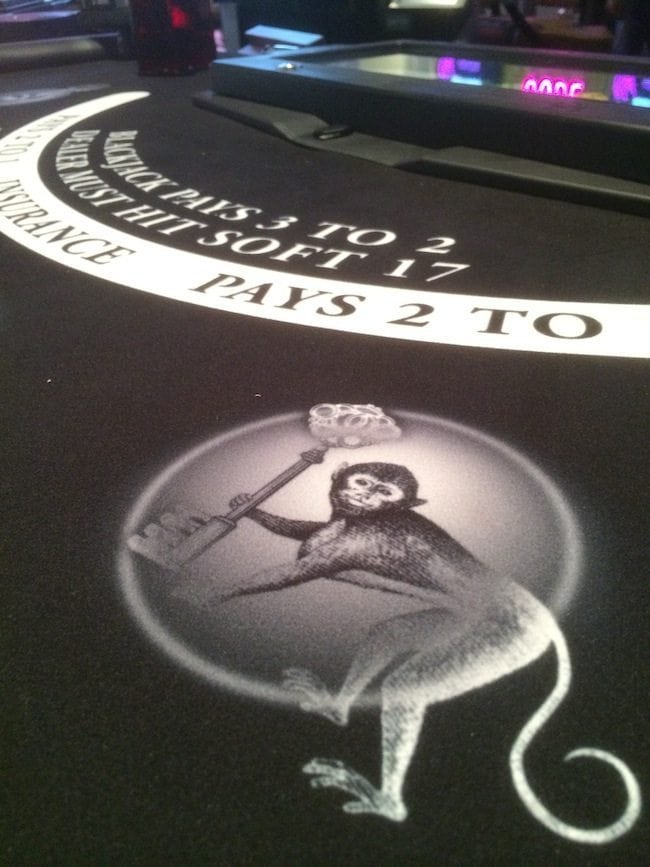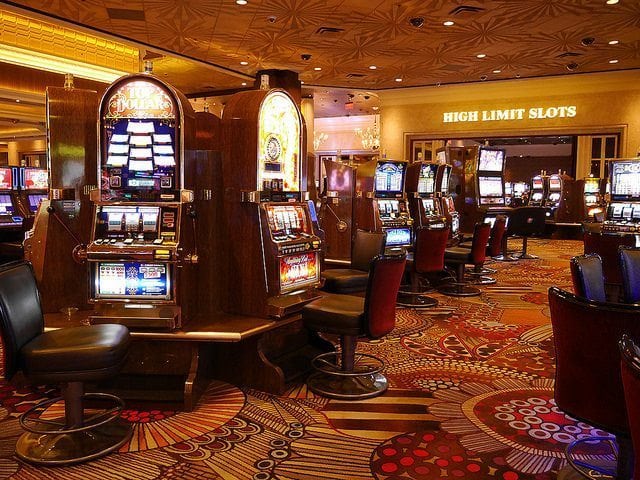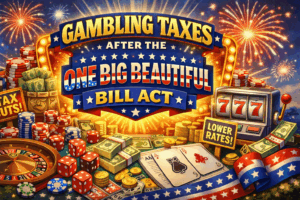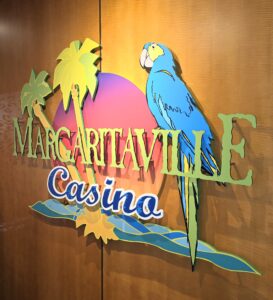
Photo: Elizabeth Hahn/Flickr
Introduction: Millennials In Las Vegas
Millennials are helping shape Las Vegas and that is freaking out some people who would rather return to the feeling and atmosphere of the city they fell in love with 10, 20, or 30 years ago. Unfortunately change happens and it’s happening at a rapid pace. This change shouldn’t be bothersome because this change targeting millennials is not much different than the advertising and marketing focus on previous generations.
This name is just the moniker given to people of the current generation like Generation X and Baby Boomers before them. Millennials (who at one time were often referred to as Generation Y) are currently the demographic of customers most coveted by businesses. This is no different than when I was a Gen Xer back in the day. Businesses always face the challenge of continuing to serve their current customer base while always seeking trends that will satisfy the future customers.
Millennials are categorized as people born between the early 1980s and the early 2000s. The older segment of this generation are most desirable because they’re about to enter their prime earning years. Like generations before them, millennials like and do things differently than those that came before them.
The balancing act between current and future customers isn’t easy and businesses are always looking for the winning combination. Just think that it has taken almost 15 years for businesses to be comfortable with the products and services they developed for Generation X. Now they move on to a new customer who has no idea why U2 is on their iPhone.
As it relates to Las Vegas, millennials don’t travel the same, they don’t gamble the same and they don’t vacation the same. It’s really no different than when we were 15-30 years old. Few people live life the same as individuals who are 10-20 years older. Today we’ll look at the impact of millennial gamblers on Las Vegas.

Millennial Gambling In Las Vegas
I didn’t play slot machines when I first reached legal gambling age because I didn’t find them to be interesting. The games were boring and hanging out with a bunch of housewives in their mid 50’s wasn’t very inviting to this 20-something guy. The average slot machine player hasn’t changed much in the past 15-20 years. The average slot machine player is a woman in her mid 50’s. Slot machine players may always be a woman in her mid 50’s.
While millennials may have similar feeling about slot machines they have an added layer of reasons to dislike slot machines. Millennials have more access to information than generations before them. This allows them to be a smarter casino customer. It’s not difficult to find out how slot machines payout. The large house edge isn’t appealing.
This group of people generally doesn’t want to play games of risk with no long term chance of winning. They may not mind a small house edge but a large house edge is out of the question. Most people of this age have come to this conclusion over time but today they have easy access to data that proves they can’t win over time playing slot machines. This information wasn’t as easily accessible 15-20 years ago.
Slot machine manufacturers, casinos and gaming commissions are looking to skill based slot machines to attract millennials but they may just be taking shots in the dark. If the skill doesn’t offer a positive expected value (returning over 100% of what’s played) then millennials won’t likely play the games.
To date none of the parties involved with skill based slot machines has an idea if the games will be allowed to offer a positive expected value. These slot machines won’t see casinos until mid-2016 at the earliest.
Skill based games, like pinball or social-style games, might prove more attractive but only if they offer a positive expected value for the players. Again, this still hasn’t been decided.
In today’s casino millennials would prefer to play table games. Unfortunately many of the larger casino operators are looking to squeeze every penny from these games today. Roulette and carnival games like Three Card Poker have a large house edge and the casino operators are looking for any way to increase the house edge in blackjack and craps.
If a blackjack player can find a game with traditional rules where they count cards and play perfect strategy they could find a small house edge. Even if 1 percent of blackjack players in a given year have this skill this is too much for the casino. Seems short sighted but that’s a discussion for another day.
Casino operators are making the game unbeatable with 6:5 blackjack payouts and other rule changes. Not only does this make the game unbeatable but it decreases the wins for smaller players. This takes the fun out of the game and will definitely not appeal to millennial gamblers in the future. Even worse is that the larger house advantage on blackjack and craps are turning off current customers.
To recap, this isn’t just turning off today’s gambler but it will likely turn off tomorrow’s millennial gambler. Millennials won’t play games where A) they have no chance of winning and B) they aren’t having fun. Most generations feel this way but this is a very active trait of millennials who are starting to earn discretionary income for the first time and don’t want to just throw their money away.
Even though some millennial gamblers on the Vegas Strip may have never seen 3:2 blackjack or 100x craps odds many of them are smart enough to know that they exist. If someone truly wants to play casino games they’ll go where they have a chance to win and have fun.
Once the casino operators have squeezed all the money they can from gamblers it wouldn’t be surprising to see a change regarding rules of these games that revert to the traditional house edge we once saw. This may be looking 5 or more years down the road so expect odds and rules to get worse before they get better in the mainstream casinos.

Photo: Anna Irene/Flickr
Casino Design
Millennials are also affecting how casinos are designed. If you’ve been to a casino in the past few years you’ve probably noticed that they’re not laid out the same as they used to be. The new casino layouts aren’t only to satisfy current customer demand but to allow the customer of the future to be more comfortable.
The once confusing casino layouts have given way to a slightly less complex design. Technology has come so far that everything must be immediate or easily accessible. Millennials don’t have time to spend searching for places to spend money. Casino floors now have more clear paths and better signage so you can get where you want to more easily. You may be directed towards certain areas of the casino but you won’t be lost and confused.
Casino games are clustered differently today. Long rows of slot machines are now smaller banks and pods of slot machines. Not only does this help make traffic flow more comfortably but it improves communication. Millennials tend to be more social while they’re on the slot floor and this allows for easier communication.
Table games are being arranged in a similar fashion. Instead of long rows of tables you should be seeing more clusters of tables. This trend may have begun with party pits years ago but is expanding to become more a part of the traditional table game experience. This year at G2E there were even a handful of companies selling mini tables with just 3 seats. Think of this as a table area for a small group of “bro’s” outside of a bar. Expect to see more social table clustering in the future.
Even Wynn Las Vegas is getting into the Millennial targeting with Encore Player’s Club. (overview of Wynn Red Card loyalty program)
In a news release this morning, Wynn Las Vegas VP of Operations Sean Christie asserted: “Gaming environments have basically been formulaic on the Strip for decades. Wynn Las Vegas will be the first to offer a new experience in gaming and entertainment on the casino floor by creating a distinctive social space to gamble with friends, watch the game or hang out before hitting the club.”
Millennials are a major reason casino floors are being reshaped. This group of gamblers may end up being able to reshape the casino games we enjoy. Next we’ll look at how millennials travel and how that will affect Las Vegas.
Marc grew up on the mean streets of the South Bronx. He's the rare combination of Yankees and Jets fan which explains his often contrarian point of view. He learned about gambling at a young age working down the street from a bookie who took action on anything from the mainstream sports to the last three digits of the purse for certain horse races. Yeah, that's a thing. Today Marc is a freelance writer and social media consultant which allows him to work anywhere there's a wifi signal. This allows him to work from the sportsbook at Red Rock Resort or the food court at The Venetian where you’ll find fast and free wifi. Writing about steak, booze, gambling and Las Vegas is a tough job but somebody has to do it.











